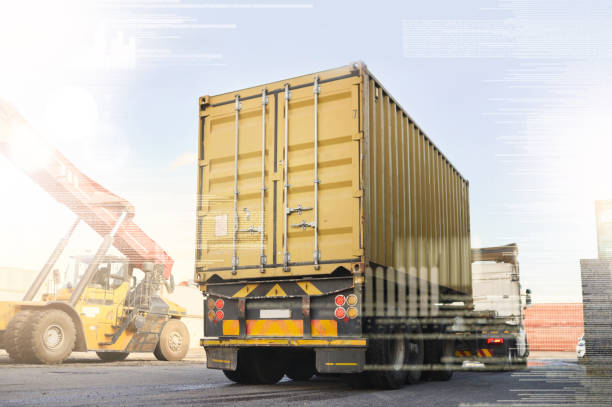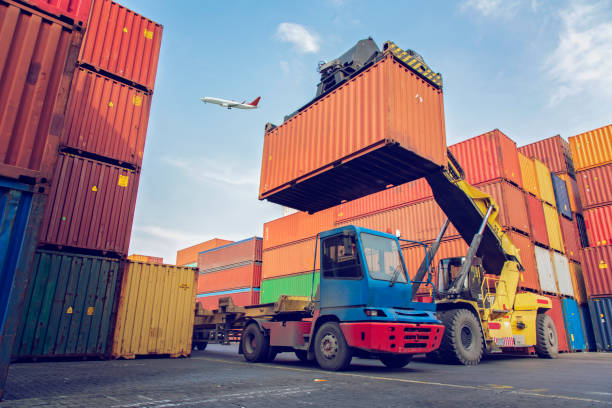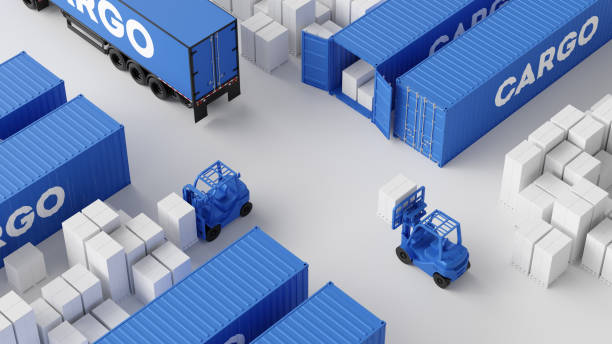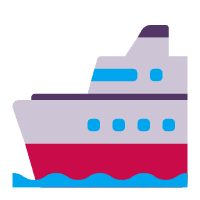When it comes to international shipping, businesses often face the choice between Full Container Load (FCL) shipping and Less than Container Load (LCL) shipping. While both methods have their advantages, full container load services offer better efficiency, security, and cost-effectiveness for large shipments. Whether you are an exporter, importer, or logistics company, understanding FCL logistics can help streamline your supply chain and reduce overall shipping costs.

What Are Full Container Load (FCL) Services?
Full Container Load (FCL) shipping refers to a method where a single customer uses an entire shipping container exclusively for their goods. This differs from LCL (Less than Container Load), where multiple shipments from different customers are consolidated into one container. With FCL, businesses can move large volumes of goods efficiently while maintaining full control over their cargo.
Benefits of Full Container Load Shipping
1. Faster Transit Times
One of the biggest advantages of FCL logistics is that the container moves directly from the point of origin to the destination without being split or consolidated with other shipments. This reduces delays and ensures faster delivery times, making FCL ideal for businesses with time-sensitive shipments.
2. Cost Efficiency for Large Shipments
While the upfront cost of full container load freight may seem higher than LCL, it becomes more cost-effective when shipping large volumes. Since the entire container is dedicated to one shipment, businesses avoid extra handling fees, consolidation charges, and potential delays associated with shared shipping.
3. Reduced Risk of Damage or Loss
When shipping goods via LCL, multiple shipments from different companies are packed into a single container. This increases the risk of damage due to frequent handling and unloading at different ports. With full container load services, your goods remain sealed in the same container throughout the journey, minimizing handling and reducing the risk of loss or damage.
4. Simplified Customs Clearance
Customs procedures can be time-consuming, especially when dealing with LCL shipments, as multiple consignments need to be inspected and processed. FCL shipping simplifies customs clearance since the entire container is assigned to a single consignee, speeding up the documentation and inspection process.
5. Greater Flexibility in Packaging and Loading
Since the entire container is reserved for one customer, businesses have full control over how their products are packed and loaded. This flexibility allows for better space utilization, secure packaging, and easier unloading at the final destination.

When Should You Choose Full Container Load Services?
While full container load freight offers numerous benefits, it is best suited for certain shipping needs:
When shipping large volumes of goods: If your shipment can fill a 20ft or 40ft container, FCL is the most economical option.
When time is a priority: FCL shipping avoids delays caused by consolidation and deconsolidation in LCL.
When security is important: High-value or fragile goods are safer in an exclusive container.
When avoiding customs delays: A dedicated container simplifies customs procedures.

How to Optimize Your Full Container Load Shipping?
1. Choose the Right Container Size
FCL shipping offers different container sizes, with 20ft and 40ft containers being the most common. Choose a size that fits your cargo efficiently to avoid unused space or overloading issues.
2. Work with Reliable FCL Logistics Providers
Selecting an experienced full container shipping company ensures smooth operations. Look for providers with a strong network, competitive pricing, and expertise in customs regulations.
3. Optimize Packaging and Load Planning
To maximize efficiency, ensure that your cargo is securely packed and loaded to prevent damage during transit. Use proper labeling, protective packaging, and optimized stacking techniques.
Final Thoughts:
For businesses that require efficient, secure, and cost-effective shipping, full container load services are an excellent choice. With faster transit times, lower risk, and simplified logistics, FCL shipping ensures that large shipments reach their destination safely and on time. Whether you're an importer, exporter, or manufacturer, investing in FCL freight solutions can enhance your supply chain efficiency and help you scale your business operations globally.




















